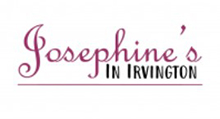Airs Saturdays, noon to 1 p.m. ET on WICR 88.7 FM.
Or stream audio live from anywhere on WICR Online!
July 23, 2022
Before Ellis Island: immigration and Benjamin Harrison
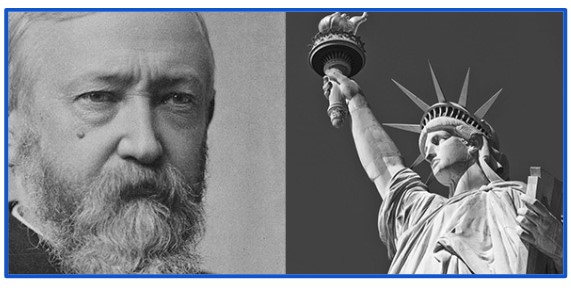
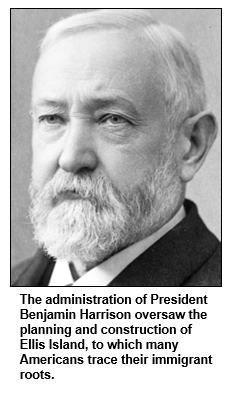
As a kind of prequel to that show, we will delve into the immigration scenario that led the federal government to open Ellis Island, including controversies at its predecessor, Castle Garden on lower Manhattan in New York City. The country’s first official immigration center, Castle Garden was operated by New York officials.
We also will explore the Chinese Exclusion Act of 1882, which Harrison opposed as a U.S. senator from Indiana. The Chinese Exclusion Act, which suspended the immigration of skilled and unskilled Chinese laborers, passed without Harrison’s support. According to Nelson’s guest, Harrison was labeled the “pro-Chinese candidate" of the Republican Party in his presidential campaign of 1888.
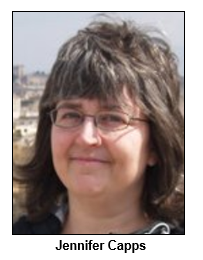
As Jennifer will explain during our show, major fires at the processing centers, including infernos at Ellis Island in 1897 and at Angel Island in 1940, destroyed the records of thousands of immigrants. The fire at Ellis Island also resulted in the loss of records of many immigrants who had entered previously at Castle Garden.
Earlier this month, a naturalization ceremony for new American citizens was held at the Benjamin Harrison Presidential Site, along with the dedication of a new, outdoor Citizenship Plaza on the lawn south of the restored home of Harrison and his wife, Caroline Scott Harrison. The plaza’s features include a Book of History that will list the new Hoosiers who became citizens at the site, where a naturalization ceremony is an annual event in July.
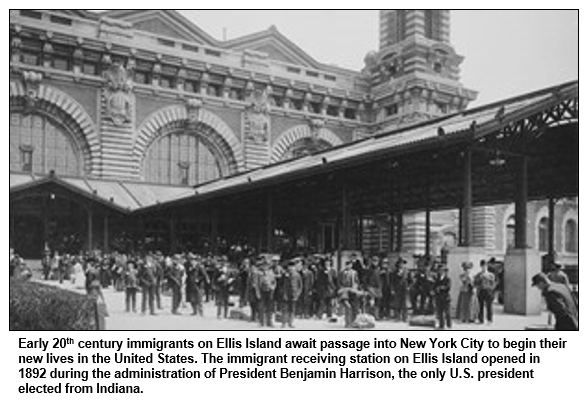
During our show, Jennifer will share accounts of some shockingly crude medical exams, including eyelid exams performed with instruments that had not been sterilized. At Ellis Island. Immigrants often were turned away if they could not pass various tests, some of which were surreptitious, including the assessments of aspiring Americans as they walked or hobbled up and down staircases at Ellis Island.
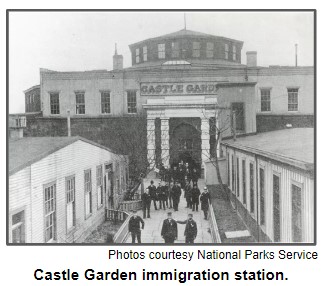 According to some estimates, about 22 million immigrants passed through Ellis Island during the years between 1892 and 1924, its peak period as the country's "door", particularly for Europeans. (Ellis Island remained open as a receiving center until 1954. During its final 30 years, limitations on immigration and the creation of other points of entry meant that far fewer immigrants were handled at the island.)
According to some estimates, about 22 million immigrants passed through Ellis Island during the years between 1892 and 1924, its peak period as the country's "door", particularly for Europeans. (Ellis Island remained open as a receiving center until 1954. During its final 30 years, limitations on immigration and the creation of other points of entry meant that far fewer immigrants were handled at the island.)
Its predecessor, Castle Garden, was shut down in 1890 by Benjamin Harrison’s secretary of the treasury after corruption scandals. According to Ellis Island: Gateway to the American Dream, newspaper investigations in the 1880s determined that “swindlers who had long lurked outside the receiving station had now insinuated themselves inside and that cheating, misleading and stealing were running rampant."
Castle Garden had operated for 35 years, opening in 1855 at the lower tip of Manhattan.
And more party photos from HHL 14 . . .
. . .where Nancy Hanks Lincoln, Johnny Appleseed, Mayor Joe Hogsett, May Wright Sewall, and lots of former show guests, celebrated Hoosier History Live’s fourteen years on the air at the Kurt Vonnegut Museum and Library on the evening of July 14. Hoosier serial killer Belle Gunness, portrayed by Sally Spears, even showed up looking for a husband to come help her work on her northern Indiana farm! Expect more party photos next week.
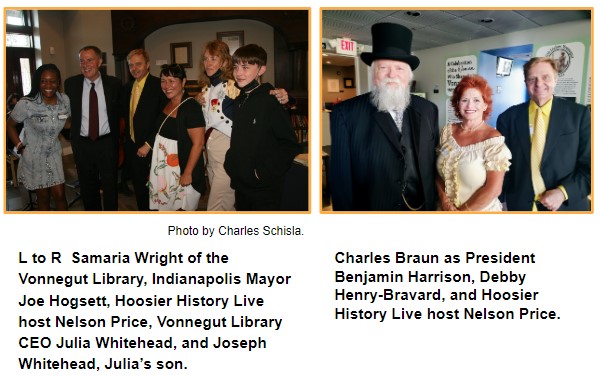
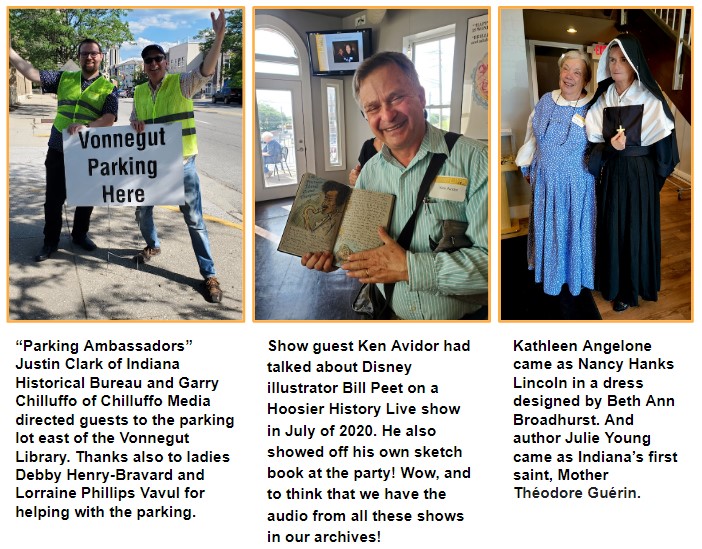
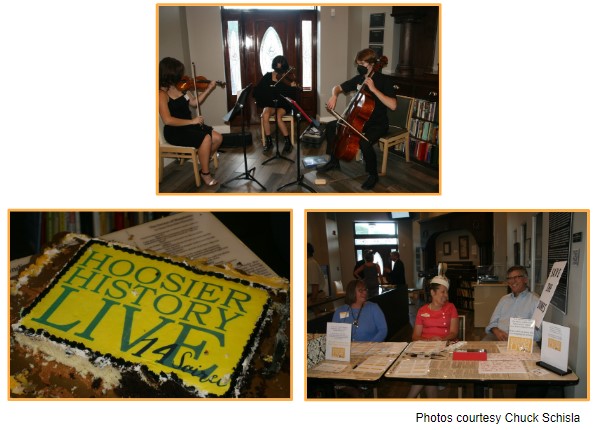

Roadtrip: Whitewater Valley Railroad
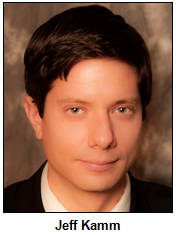 Guest Roadtripper Jeff Kamm, a teacher at Plainfield Community Schools and author of “Classic Restaurants of Indianapolis”, will be taking a ride on the Whitewater Valley Railroad. It’s a historic passenger train offering trips from Connersville to Metamora in the summer!
Guest Roadtripper Jeff Kamm, a teacher at Plainfield Community Schools and author of “Classic Restaurants of Indianapolis”, will be taking a ride on the Whitewater Valley Railroad. It’s a historic passenger train offering trips from Connersville to Metamora in the summer!
The railroad traces its roots back to the canal days in Indiana. The Whitewater Canal opened in 1845, connecting the towns of Hagerstown and Lawrenceburg. The canal eventually was a failure, flooding in 1847 and causing washouts, and it was never reopened between Brookville and Lawrenceburg.
By the 1860’s trains had become the preferred method of transportation for goods and people. The Indianapolis Cincinnati Railroad laid tracks along the former canal towpath, and the line operated many years, eventually becoming a part of the New York Central Railroad. Railroad mergers in the 1960s and 1970s saw the formation of Conrail. The line was abandoned in 1972 in favor of other routes.
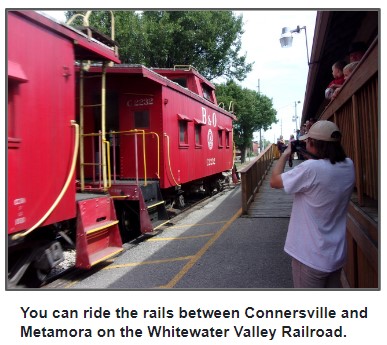
A non-profit was set-up in 1974 to offer scenic passenger excursions. By 1984, The Whitewater Valley Railroad had acquired ownership of the right-of-way, and now offers trips to Metamora throughout the summer months. Metamora is a restored canal town and features many shops, working canal locks, and a grist mill.
Show topics, and prizes sought
 Prizes continue to be sought for our Hoosier History Live on-air History Mystery contest. Ideally, prizes for on-air trivia should fit in a business size envelope. Contact molly@hoosierhistorylive.org our executive producer if you’d like to offer prizes for your business or organization.
Prizes continue to be sought for our Hoosier History Live on-air History Mystery contest. Ideally, prizes for on-air trivia should fit in a business size envelope. Contact molly@hoosierhistorylive.org our executive producer if you’d like to offer prizes for your business or organization.
If you enjoy learning about all things Indiana at noon on Saturdays and would be willing to log the live show for edits please let us know!. This would entail noting silence on the air or phone line buzzes, or general audio anomalies, and then getting those notes to our editor Ryan DeRome. We can train you. If you’d like to help us out contact nelson@hoosierhistorylive.org or molly@hoosierhistorylive.org.
Everyone is welcome to pitch a main show topic to our host, Nelson, at nelson@hoosierhistorylive.org. If you suggest a topic, you must also provide contact info for a suggested guest or guests. Guests need to be knowledgeable, and easy to listen to on radio.
Once again, this show doesn’t just magically fly out of the airwaves! A lotta work goes into preparing the show by many people behind the scenes.
Molly Head, producer/general manager, (317) 506-7164
Ryan DeRome, associate producer
Cheryl Lamb, administrative manager
Richard Sullivan, senior tech consultant
Pam Fraizer, graphic designer
Garry Chilluffo, consultant
"...Fills a niche..."
"Hoosier History fills a niche for the lover of Indiana history.” Kathleen Madinger Angelone
"... a compelling and engaging project..."
"Molly Head and Nelson Price are Indiana-based visionaries who have created a compelling and engaging media project with Hoosier History Live. Podcasts, website, enewsletter, and live call-in radio show; it’s all there!"
- Keira Amstutz, President and CEO, Indiana Humanities
Please tell our sponsors that you appreciate their support!

 Acknowledgments to WICR-FM, Fraizer Designs, The Indiana Album, Monomedia, Indiana Historical Bureau, Indiana Landmarks, Henri Pensis, Kielynn Tally, Genesis Brown, Leticia Vasselli, Heather McIntyre, and many other individuals and organizations. We are independently produced and are self-supporting through organizational sponsorship and through individual contribution at the yellow button on our newsletter or website. For organizational sponsorship, which includes logos, links, and voiced credits in the show, contact Molly Head at (317) 506-7164 or email her at molly@hoosierhistorylive.org. Our media reach continues to grow via podcasting.
Acknowledgments to WICR-FM, Fraizer Designs, The Indiana Album, Monomedia, Indiana Historical Bureau, Indiana Landmarks, Henri Pensis, Kielynn Tally, Genesis Brown, Leticia Vasselli, Heather McIntyre, and many other individuals and organizations. We are independently produced and are self-supporting through organizational sponsorship and through individual contribution at the yellow button on our newsletter or website. For organizational sponsorship, which includes logos, links, and voiced credits in the show, contact Molly Head at (317) 506-7164 or email her at molly@hoosierhistorylive.org. Our media reach continues to grow via podcasting.
Thank you!
We'd like to thank the following recent individual contributors who make this show possible. For a full list of contributors over the years, visit Support the Show on our website.
- Aleta Hodge
- Peggy Hollingsworth
- Lorraine Phillips Vavul
- Margaret Smith
- Jane Hodge
- Jeff Price
- Joe Young
- Sue and Craig Thomson
- Richard Vonnegut
- Jim Lindgren
- Ken and Luan Marshall
- Meg Storrow
© 2022 Hoosier History Live. All rights reserved.
|

